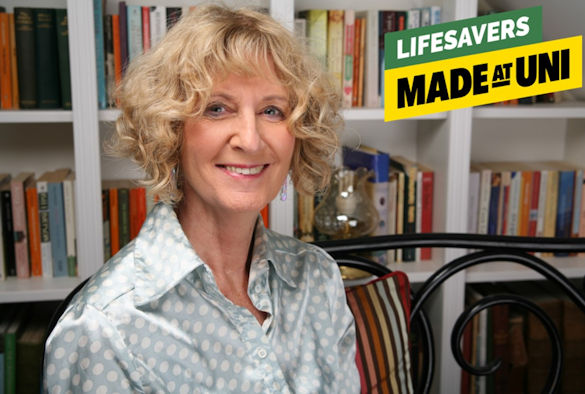Professor Dame Margaret Whitehead, from the University’s Department of Public Health and Policy, has been named by Universities UK as one of the Nation’s Top 100 Lifesavers as part of their latest MadeAtUni campaign.
The Nation’s Lifesavers are individuals or groups based in universities across the country whose work is saving lives and making a life-changing difference to our health and wellbeing.
Margaret has been named for the first time today as part of Universities UK’s MadeAtUni campaign, which brings to life the impact of universities on families, communities and wider society.
Ethics to action
For over 30 years, Professor Dame Margaret Whitehead and her colleagues have been pioneering research on tackling social inequalities in health – asking, “what can be done to address the shorter lives and earlier onset of disability among children and adults living in more disadvantaged circumstances?” Their work covers the whole spectrum from ethics to action.
Margaret was awarded a Damehood in the 2016 New Year Honours list for services to public health, and in particular the field of health inequalities.
In 2018 she was selected by the Royal Colleges of Physicians of the UK as an ‘Outstanding Woman in Medicine’ for the RCP’s celebratory exhibition of ‘women in medicine’
Universities were invited to nominate an individual or group who has made a significant contribution to the nation’s health and wellbeing. Over 100 universities from Plymouth to Dundee submitted a nomination.
Transforming lives
The Nation’s Lifesavers are battling diseases, tackling inequality, helping new parents and children enjoy the best start in life and supporting older people. In Mental Health Awareness Week, their stories show a huge contribution to improving our mental health and wellbeing.
Stories of the Nation’s Lifesavers highlight how the value of universities stretches far beyond the educational opportunities and economic impact they provide. Whether you attended university or not, the likelihood is that everyone has directly or indirectly benefited from medical advances or health and wellbeing developments pioneered at university.
Professor Dame Janet Beer, Vice-Chancellor of the University of Liverpool and President of Universities UK, said: “When people think of lifesavers they understandably tend to focus on the dedication and skill of our doctors, nurses, carers, and paramedics – many of whom are trained at universities. Every day, up and down the country, universities are also working on innovations to transform and save lives. Research taking place in universities is finding solutions to so many of the health and wellbeing issues we care about and the causes that matter.
“By proudly working in partnership with charities, the NHS and healthcare organisations, universities are responsible for some of our biggest health breakthroughs and in revolutionising the delivery of care.
Professor Dame Margaret Whitehead and Professor David Taylor-Robinson (L) and Benjamin Barr (R)
“This campaign is a chance to bring to life the wonderful and often unexpected work going on every day in our universities and to celebrate some of the people working to make a life-changing difference to us all.”
Saving lives and keeping us healthy
Campaign ambassador Dame Katherine Grainger, Chancellor of Oxford Brookes University, Chair of UK Sport and Britain’s most decorated female Olympic athlete, commented:
“MadeAtUni Lifesavers celebrates the researchers and their teams in universities across the country who are providing innovations, breakthroughs, cures and treatments to improve the health and wellbeing of adults and children, locally, nationally and internationally.
“I know from my own direct experience at Oxford Brookes that our universities are treasuries in which to share knowledge, test established notions and evidence about health, and ultimately create fresh approaches which can help us all to thrive.”
Research, carried out by Britain Thinks, shows the public are proud of UK universities but have little understanding of the benefits they bring, with most not being aware that UK academics are behind many of the discoveries that save lives and keep us healthy.
More information on the campaign and Professor Dame Whitehead’s research can be found here.
